Disclaimer: this article contains spoilers of season 6 of The Vampire Diaries.
I know what you must be thinking. Vampires? Is that still a thing? Not really, no… However, one of CW’s hit shows The Vampire Diaries is still going – if not strong since like its 3rd season – pretty smoothly and has even been renewed for a 7th season! Now six years is a long time for a show to last, especially on the CW where most shows are lucky to even see a third season, and are considered incredible if they attain a fourth one. So love it or hate it, TVD seems to have established itself as a pretty solid show for the network, despite some very problematic issues having to do with race and rape culture. Why write about TVD you ask? Because I find interesting how the show, in its treatment of people of color and/or females, unintentionally and pretty accurately reveals the kind of society we live in. Now do not get me wrong, not everything about TVD sucks (no pun intended). In fact it is in my opinion a pretty good show with clever twists and turns and at times pretty awesome cliffhangers. So I must confess that yes: TVD is my guilty pleasure. Most of the characters are pretty compelling – except perhaps for its lead (sorry Elena, I never really liked you) – and as a whole there are a lot of good things that could be said about the show. In fact, I still have hope that Season 7 could be the best season yet if the writers took it upon themselves to address the different issues affecting their characters, storylines and by extension, their viewers. The reason I’ve chosen TVD as an example is because it is one of the shows I am most familiar with but I do find that a lot of these issues aren’t specific to TVD or the fantasy genre and unfortunately often apply to a number of other shows, be it the ever successful Game Of Thrones, classics like Buffy The Vampire Slayer and even comedy shows like Friends or Modern Family. I will not touch on the HUGE issue that is TVD’s promotion of rape culture since it has already been addressed very eloquently and thoroughly by others. I will tackle however the issue of racism, which I often find has a tendency of flying way too often under the radar.
- The mayonnaise diaries
Now my biggest issue with most shows is the very apparent lack of diversity. Taking the example of TVD, its ensemble cast comprises approximately 9 characters (depending on the season): Stefan, Damon, Elena, Caroline, Tyler, Matt, Jeremy, Alaric and Bonnie. Out of these characters, 8 are white (Tyler though played by a latino actor, Michael Trevino, is portrayed as a white character), and only one is black. That character is Bonnie Bennett; played by biracial actress Kat Graham. Doesn’t look good for representation now does it? In all fairness, there have been other recurring characters of color in the show: Pearl and Anna were Asian, Luka and his father, Bonnie’s parents, and Jamie, are all African American, but all of those characters have had very little storyline and were all killed off or sent away at some point. That leaves us with Bonnie. The only person of color in that whole town situated in Virginia (arguably a very racially diverse state in real life). Therefore, Bonnie bears the burden of representation not only for black viewers but for all minorities (Asian, latino, etc. alike), while white people who watch the show have at least NINE DIFFERENT CHARACTERS to represent them, all having very different personalities and aspirations! Mind you, I haven’t even counted the recurring white characters like Katherine, Jenna, Sheriff Forbes, Enzo, etc. !
- Tokenism and asexuality
We could cut the show some slack and think to ourselves, “well, even if there is very little diversity, maybe Bonnie at least gets some good storylines!” WRONG! Bonnie Bennett is probably one of the most poorly treated characters in TV history. She is the ultimate token black girl/magical negro. She is always put in a position of servitude and is ultimately a walking-talking plot device. If you watch seasons 1 through 5, Bonnie gets very little screen time, and the little she does get is only to cast spells, not because it is what she wants to do, but because she is asked, or mostly ordered or threatened into by her white friends and enemies. Bonnie is always the loophole: when the plot requires it, she is brought out of the shadows, and just as soon, shoved right back in. No questions asked. She has had no character development whatsoever, and in a show that lives and thrives based on its “ships”, Bonnie has only really ever been involved with one guy, that is Jeremy, her best friend’s human little brother. Now there is absolutely nothing wrong with that but, when the white girls get to exclusively date guys that score high on the show’s Richter scale of hotness, aka older dangerous, unpredictable, (over)protective vampire/werewolf/hybrid guys, that’s when it gets unfair. Please let me emphasize that by no means am I saying that the criteria mentioned here is what anyone should look for in a mate, rather I am just discussing these “qualities” within the context of the show which keeps romanticizing them and painting such men as desirable. Love or hate younger predictable human Jeremy, even that relationship is made to be mind-numbingly boring and stale because all Bonnie and Jeremy are ever allowed to talk about is Elena, the lead white girl, in order to advance the plot. So Bonnie’s love life isn’t even about her, but is rather a means to an end, robbing her once again of all agency in her own narrative. On the other hand, Elena and Caroline – the two white girls – have hot guys fighting over them and worshiping the ground they walk on.
Elena, who dated Matt, has been the center of a never ending love triangle involving Stefan and Damon the two hottest vampires in town, and has had some romantic vibes going on with Elijah, an original vampire. She has had the pleasure of being at the receiving end of countless romantic speeches and gestures. Now one could consider such treatment legitimate given the fact that Elena is the lead, but when you compare Bonnie’s treatment with that of Caroline, another supporting character, the difference in treatment is rather striking. Unlike Bonnie, Caroline is never really part of the A plot, yet she gets a real storyline allowing her to laugh, cry, lash out, and have a squadron of love interests lining up at her doorstep. Caroline has therefore had romantic entanglements with Damon, Matt, Tyler, Klaus, and Stefan.
Even Katherine, merely a recurring character, has been sought after by Stefan, Damon, Trevor, Mason, Elijah and Klaus; and Bonnie, well, she just has Jeremy a guy who cheated on her with Anna, his ex-girlfriend turned ghost, at one point even stating that “he always loved her [Anna]” by then completely rejecting his relationship with Bonnie and the importance it could have had for him.
Bonnie, like a lot of WOC on our screens, is made to be asexual and her looks are constantly downplayed so that her female co-stars may shine brighter. 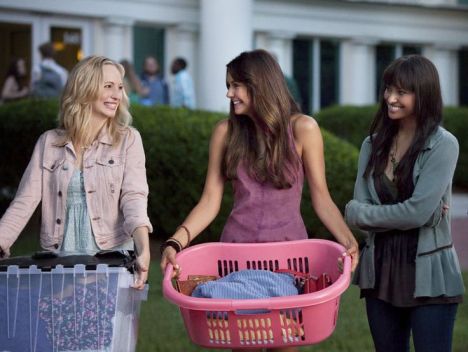

 As a result she’s afforded the worst clothes, the worst hair, the worst makeup and whenever the storyline calls for formal events (balls, weddings, etc.) – that require characters to wear pretty dresses or smart tuxedos, and often are crucial in building romantic connections and by extension character development – Bonnie is often and very conveniently MIA.
As a result she’s afforded the worst clothes, the worst hair, the worst makeup and whenever the storyline calls for formal events (balls, weddings, etc.) – that require characters to wear pretty dresses or smart tuxedos, and often are crucial in building romantic connections and by extension character development – Bonnie is often and very conveniently MIA.
Now, in no way does this mean that in order for a female character to be compelling or relevant, she needs to have a love interest, but in a show that values its characters’ love lives above everything else the way TVD is infamous for, it is very telling that the girl of color gets little to nothing in that department.
I find that studying the whole “shipping” phenomenon that comes with these YA shows and movies is very interesting and telling in the treatment of characters of color and by extension POC in our society.
If we look at Bonnie, it is rather scary how quick the writers are in shutting down ships that involve her and just how violent and hateful the fandom can react to said ships. First off we have Klonnie. Pretty early on, fans began to ship Bonnie with Klaus, the new big bad villain in town. Bonnie was THE character who’d had the most showdowns with Klaus and the only one who could match him in power and strength, making for an interesting dynamic and great potential for something romantic to happen somewhere along the line.
The Klonnie fan base grew so much that it began to gain the showrunners, cast and media’s attention. Just as soon though, the idea of Klonnie was conveniently shut down and Klaroline (Klaus and Caroline) was made canon instead although it made very little sense in comparison. Another big ship was Kennett (Bonnie and Kol) which was shut down immediately by showrunner Julie Plec.
But it is okay for Elena and Caroline to date murderous vampires and for Bonnie to date instead her kinda sorta half-brother Jamie? Okay…
And finally there’s Bamon (Bonnie and Damon). Though this ship has existed since the very beginning of the show, it has been getting a lot of attention lately due to the many scenes and relationship development Bonnie and Damon have had in the latest season.
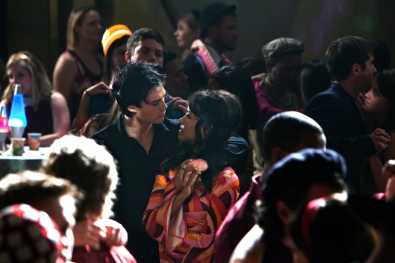
“The Last Dance” – Ian Somerhalder as Damon Salvatore and Katerina Graham as Bonnie in THE VAMPIRE DIARIES on The CW.
Photo: Annette Brown/The CW
©2011 The CW Network, LLC. All Rights Reserved.
And for once, even the media seems to be hopping on the bandwagon, excited about the prospect of Bamon happening romantically in season 7. However the writers have remained painfully silent about it for years now, and the reactions of some of the fandom has ranged from patronizing comments, to ridicule, to hate and even death threats. Now why is it so difficult for people to understand or even want Bonnie, a black woman, to be with Damon, yet are so quick to root for Steroline (Stefan and Caroline)? Very little people had opinions about Beremy (Bonnie and Jeremy) because it didn’t make any waves. Nobody really cared because Jeremy wasn’t sought after the way Damon is. In being with Jeremy, Bonnie wasn’t a threat to Elena or Caroline. That unspoken rule that she was somehow subservent to them wasn’t breached by her being with Jeremy. Everyone is fine with Bonnie as long as she is seen and not heard. Jeremy isn’t as appealing as Damon because Elena would never want to be with him being as he’s her little brother and Caroline has never even laid eyes on him. But if Bonnie was to be with Damon it would change dynamics completely. It would force the writers to really put her on the map, not as Elena or Caroline’s friend/servant, not as the magical negro, but as her own self worthy of being loved by a character so important and sought after, and that is an idea that a society bathed in white supremacy and white privilege cannot fathom. Ask yourself why Bamon still remains such a delicate subject and so unthinkable to some despite the fact that – unlike Steroline and a lot of other ships – it even has basis in the original book series? Why is it that so many people find it so easy to ship book Bamon when Bonnie is described as a white redhead, but just can’t manage to open their minds to the potential of show Bamon when Bonnie is played by a WOC? Because the society we live in teaches us not to want such things, worse it teaches us to feel disgusted by it and to always prefer whiteness over everything else whether it makes sense or not. Whether it’s right or not.
Moreover, all Bonnie’s relationships (friendship and romance) are one-sided. Over and over again she is made to sacrifice herself for her friends and boyfriend without even blinking. None of her selfless deeds owe her any kind of recognition as the hero that she is, as opposed to Elena whose very scarce sacrifices owe her unending praise, most of the time undeserved. Bonnie is made to be the automatic sacrificial lamb which has heavily contributed in making her well-being, dreams, desires and entire life seem less valuable than that of the rest of the characters. Viewers are made to see Bonnie as disposable, so much that the rare times she is actually made to take a stand, her character invariably finds herself at the receiving end of unfathomable hate from the fandom.
Unfortunately, these kind of hateful comments seem to have doubled ever since season 6; when Bonnie was finally given more of a purpose and agency to put herself first which was long overdue and has been for a lot of critics the most refreshing part of what has otherwhise become a pretty repetitive show.
- Negationism
Another thing grossly and specifically wrong with TVD is its appalling silence about slavery. In the show’s first season, the year 1864 is of significant importance and is mentioned repeatedly. It is the year when two of the leads on the show, Stefan and Damon fall in love with evil Katherine and are subsequently turned into vampires. There are a lot of flashbacks to 1864 made to set up the characters’ backstories. In a few of those flashbacks, Emily Bennett, Bonnie’s ancestor, and a WOC, is seen and even mentioned as being Katherine’s “hand maiden”. Let’s be clear, though this is fiction, there have been some mentions of real life historical facts. For example, it is said that Damon Salvatore fought for the confederacy; and there even is a scene set up during which he returns home after having deserted, sporting a confederate army uniform. So while there are vampires and witches in this fictional town, it is still set in historical 1864 Virginia, therefore Emily Bennett wouldn’t have been anything else but a SLAVE.
Yet it was conveniently decided to gloss over that clearly uncomfortable fact, by calling her instead a “hand maiden”. That is disgusting not to mention completely unnecessary. Katherine is known to be one of the most evil characters on that show. She strings guys along, pretends to be dead to lure in her prey, manipulates, lies and kills. It would therefore stand to reason that she wouldn’t have had much of a problem being a slave owner, so if anything, calling Emily Bennett what she probably was – which is a slave – wouldn’t have changed Katherine’s character in the slightest, but in fact could have even brought more depth to her character and Emily’s, yet the writers conveniently chose to ignore that fact.

“Lost Girls” – Paul Wesley as Stefan and Ian Somerhalder as Damon in THE VAMPIRE DIARIES on The CW.
Photo: Bob Mahoney/The CW
©2009 The CW Network, LLC. All Rights Reserved.
Even worse, in Mystic Falls, the fictional town of Virginia where the story is based, tons of events are held celebrating the founding families. We see Elena, Stefan, Damon and Caroline happily attend the founders’ ball, and even play dress-up in 19th century attire at a founders’ parade. Bonnie obviously wasn’t at the ball nor did she dress-up for the parade – not because it would have been disturbingly wrong, but it probably had something more to do with the fact that she is banned from wearing pretty dresses, but I digress.
Instead, she was made to snap pictures, watch the parade and wave happily as her friends celebrated the lives of people who owned her ancestors. Talk about inappropriate!
- Black lives don’t matter
Another issue I have with this show is how quick and easy it is for people of color to die. To give you an idea, here is a list of all the characters of color that have been killed off without it triggering any grief or sense of loss for the characters and the viewers: Pearl (Asian), Harper (black), Luka and his father (black), Conor (black), random black guy eaten by Caroline, Jesse (black), Ivy (Asian), Qetsiyah (played by an Indian actress but supposed to be black). Versus the characters’ deaths that were met with some kind of emotional pain by at least one character: Jenna (white), Vicki (white), Grams (black), Tyler’s father (white), Tyler’s mother (white), Anna (Asian), Lexi (white), Isobel (white), John (white), Luke (white), Rose (white), Andie (white), Elena (white), Nadia (white), Katherine (white, her death is made a big deal out of though everyone hates her), Jeremy (white), Bonnie (black, not sure if I should count her in because she was dead for 3 months and none of her friends even noticed…), Damon (white), Sheriff Forbes (white).
But what is probably most telling about how little the lives of characters of color matter on this show, is when we compare Bonnie and Caroline losing their fathers. Bonnie and Caroline are both part of the main cast, yet though Bonnie has been part of the main plot even more so than Caroline, she isn’t given parents and a home or even just as much as a bedroom until season 4 (after fans kept demanding it from the writers).
Caroline on the other hand who has never really been part of the main plot, was given a home, a room and a very present mother pretty much since the pilot. Caroline’s estranged father was then introduced briefly back in season 2 before being killed off, while Bonnie’s father who was supposed to have been living with her all along was only introduced in season 4 to be killed off right away! But this isn’t even what is most problematic here, what remains most disturbing is how differently the deaths of both fathers were handled. Caroline’s father dies with vampire blood in his system. His hate for vampires was so strong that he made a conscious decision to die instead of completing the transition. Caroline sat by him as he breathed his last breath and was left to grieve, as her sense of loss was addressed in an entire episode. On the other hand, Bonnie who was a ghost at the time (don’t ask), watched her father’s throat being slit open by a maniacal killer and couldn’t so much as hold his hand as he laid dying. We see her scream and cry in horror through a camera shot that lasted all and all probably a couple seconds and… that’s it. Everyone moves on!
None of her friends are ever made to mention what happened and Bonnie doesn’t either. She just lights a candle in remembrance of her father a season later, without her trauma and grief to ever be addressed or even mentioned. What’s more, later on in season 6, Caroline’s mother dies of cancer and that’s enough to make her turn off her humanity and be at the center stage of a few episodes, while Bonnie once again gets nothing.
Why does this matter? Because if a show for teenagers is able to dehumanize people of color in a way that nobody or very little people seem to question, it tells us something really scary about our society and our level of tolerance for racism. It tells us why black people are so easily brutalized by police all over the US be it a man murdered over a routine traffic stop or a 14 year old girl being assaulted by a police officer, it tells us why a man can get pushed off a metro carriage in France for being black, why 147 Kenyan students can be murdered by terrorists in general indifference, why thousands of migrants can drown in the Mediterranean without anyone batting an eyelash, or why doing away with the confederate flag was even a subject of debate. TVD – and an appalling number of mainstream shows – is a construct of a society that oozes systemic racism and white supremacy. White people watch TV and internalize those toxic ideas to such extent that POC become irrelevant, worthless and invisible to them. POC watch, and if they’re not alert enough, begin to hate themselves and subconsciously apply the rules of colorism to their own communities. When we’re not in front of our TVs, we’re being fed those ideas by the Internet, by the movies, by commercials, magazines, and the very people around us. That is why it is so important to speak up whenever we come across such destructive attitudes and narratives. Simply ignoring them will not do. We are not overreacting, we are not being paranoid in standing up for what is right, whether it is walking through Ferguson with our hands up or tweeting network executives about the racism in their shows which contributes to poison impressionable teenaged minds. We can all make a change in our own little way. No issue is unimportant. I may not change the world by writing this article, but I will cause at least one person out there to question things and that in itself is a victory. Silence is complacency.



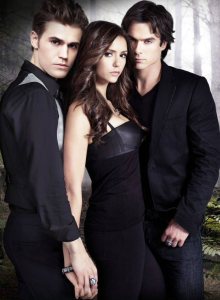



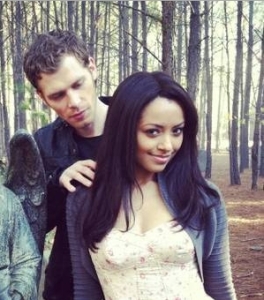

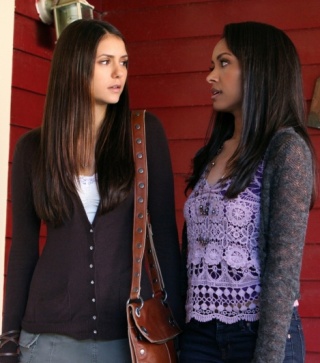








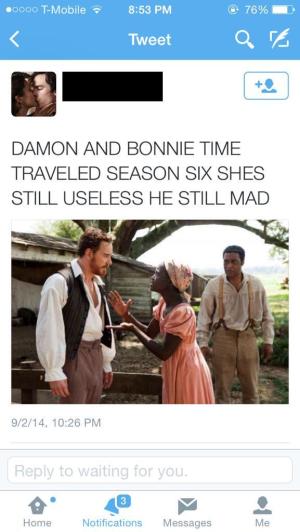







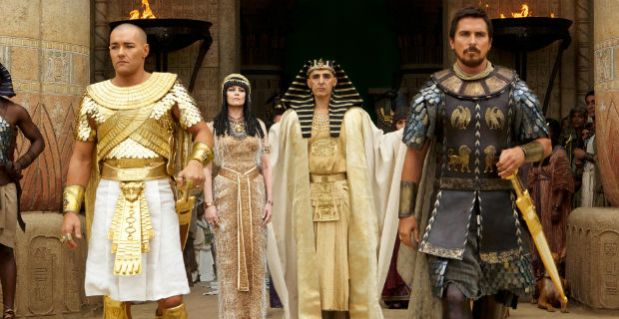









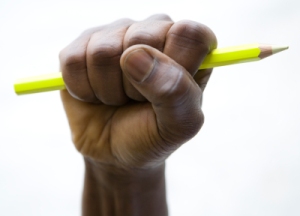 we understand each other on the stuff that matters because we know what it’s like to be forgotten, stereotyped, diminished, dominated, ridiculed and even hated. We know what it’s like growing up with media that completely ignores us as if we’re not interesting enough or even worth talking about. But I can also write about white people because I’ve grown up and live in white culture. It’s all around me. It’s all we ever see and hear about. It is by creating, writing, filming, producing, distributing our own stories that we can truly awaken people, both POC and white to reality and the importance of diversity and representation; so that one day none of us will ever have to explain to our coworkers why movies like Exodus are shameful, or even better, such bigoted movies would never be approved for funding in the first place.
we understand each other on the stuff that matters because we know what it’s like to be forgotten, stereotyped, diminished, dominated, ridiculed and even hated. We know what it’s like growing up with media that completely ignores us as if we’re not interesting enough or even worth talking about. But I can also write about white people because I’ve grown up and live in white culture. It’s all around me. It’s all we ever see and hear about. It is by creating, writing, filming, producing, distributing our own stories that we can truly awaken people, both POC and white to reality and the importance of diversity and representation; so that one day none of us will ever have to explain to our coworkers why movies like Exodus are shameful, or even better, such bigoted movies would never be approved for funding in the first place.